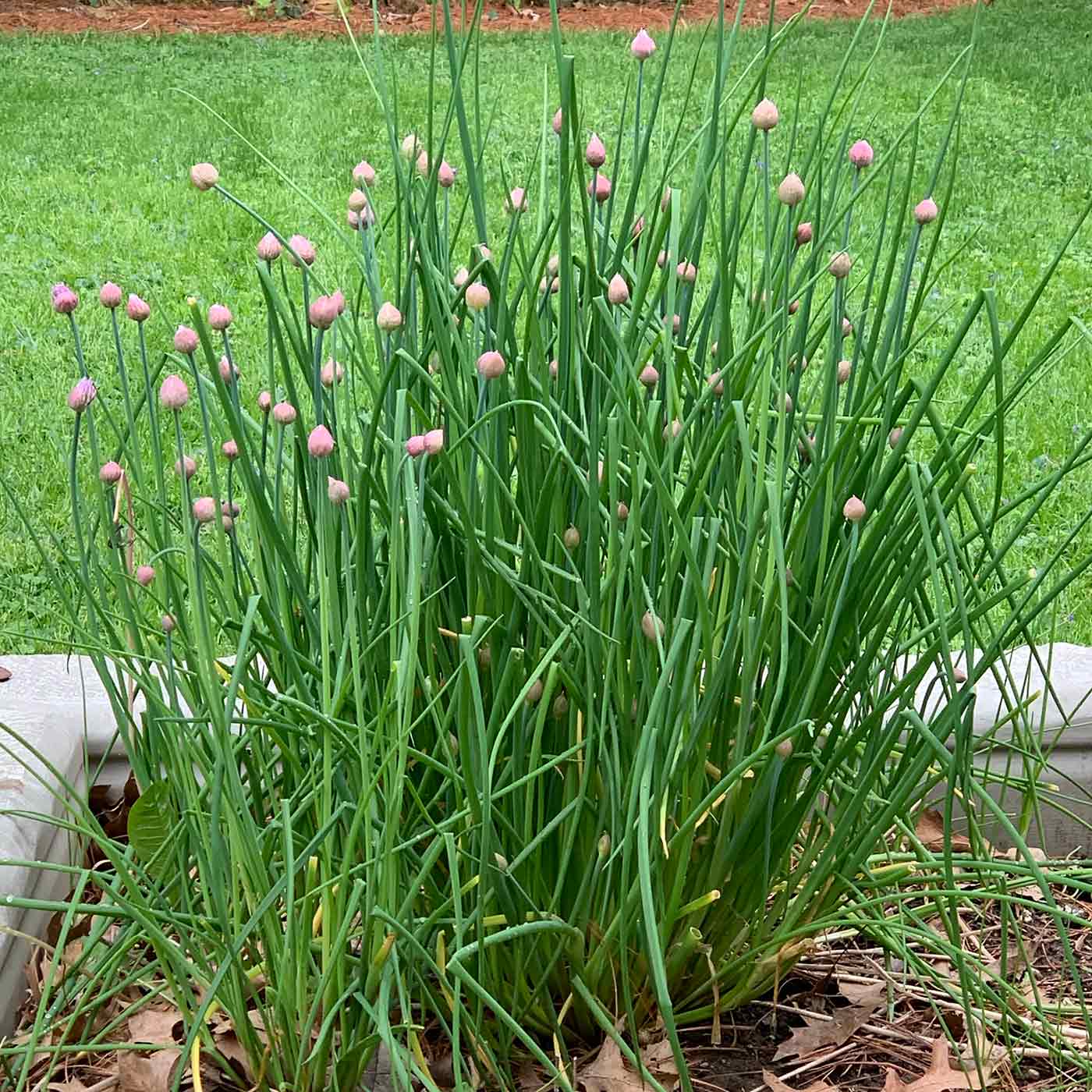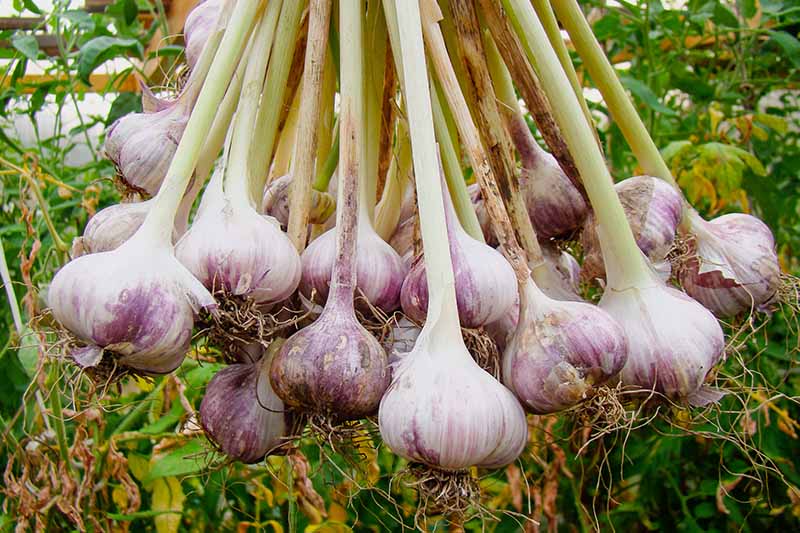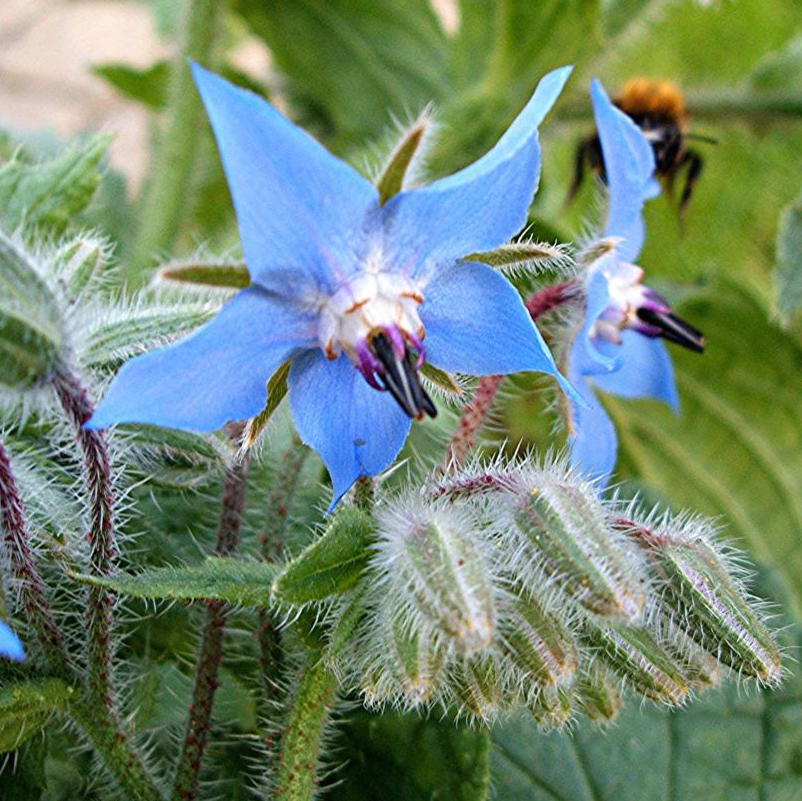Companion Plants That Will Help Your Apple Trees Thrive
Companion Planting That Will Help Your Apple Trees Thrive
Apple trees are a staple in many backyards and orchards. They are relatively easy to care for, but they can still benefit from some extra help. One way to give your apple trees a boost is to plant companion plants nearby. Companion plants are those that benefit each other in some way. They can attract beneficial insects, deter pests, improve soil quality, or provide other valuable services.
There are many different companion plants that can be beneficial for apple trees. Some of the most popular options include:
- Allium plants, such as chives, onions, and garlic, help to repel pests like aphids, beetles, and spider mites. They also help to improve soil aeration and drainage.
- Beans and peas are legumes that can fix nitrogen in the soil, which can help to improve the health of your apple trees. They also help to suppress weeds.
- Borage is a flowering plant that attracts beneficial insects, such as ladybugs and hoverflies. It also helps to improve soil quality and repel pests.
- Clover is another nitrogen-fixing plant that can help to improve soil quality. It also helps to suppress weeds and attract beneficial insects.
- Nasturtiums are colorful flowers that attract beneficial insects, such as ladybugs and lacewings. They also help to deter pests like aphids and whiteflies.
- Pot marigolds are another type of flower that attracts beneficial insects. They also help to deter pests and improve soil quality.
- Yarrow is a flowering plant that helps to repel pests like deer and rabbits. It also helps to improve soil drainage and suppress weeds.
When choosing companion plants for your apple trees, it is important to consider the size of the plants and their sunlight requirements. Some companion plants, such as beans and peas, need full sun, while others, such as yarrow, can tolerate partial shade. It is also important to avoid planting companion plants that are known to compete with apple trees for nutrients or water.
To plant companion plants, simply dig a hole that is slightly larger than the root ball of the plant. Add some compost or manure to the soil and mix it well. Then, place the plant in the hole and backfill with soil. Water the plant well and mulch around the base to help retain moisture.
Companion planting is a simple and effective way to help your apple trees thrive. By planting the right companion plants, you can attract beneficial insects, deter pests, improve soil quality, and more. With a little planning, you can create a thriving apple tree garden that will provide you with delicious fruit for years to come.
Apple trees are a staple in many gardens, but did you know that there are certain plants that can help them thrive? Companion planting is the practice of planting certain plants together for their mutual benefit. For apple trees, some of the best companion plants include:
- Marigolds: Marigolds help to repel pests such as aphids, Japanese beetles, and nematodes.
- Nasturtiums: Nasturtiums also help to repel pests, and they can also improve the soil quality around your apple tree.
- Chamomile: Chamomile attracts beneficial insects, such as ladybugs and hoverflies, which help to control pests.
- Lavender: Lavender has a strong scent that deters pests, and it can also help to improve the air quality around your apple tree.
- Garlic: Garlic has anti-fungal and insecticidal properties that can help to protect your apple tree from diseases and pests.
If you're interested in learning more about companion planting with apple trees, I recommend visiting Gardenia Inspiration. This website has a wealth of information on the topic, including a list of recommended companion plants, tips on how to plant them, and advice on how to manage them.
FAQ of companion planting with apple trees
1. What are some good companion plants for apple trees?
Some of the best companion plants for apple trees include:
- Alliums: Chives, onions, and garlic are all good companion plants for apple trees. They help to repel pests and improve the health of the soil.



- Basil: Basil is another good companion plant for apple trees. It helps to attract beneficial insects and improve the flavor of the apples.
- Borage: Borage is a flowering plant that helps to attract beneficial insects and repel pests. It also helps to improve the nitrogen levels in the soil.

- Marigolds: Marigolds are another flowering plant that helps to attract beneficial insects and repel pests. They also help to improve the drainage around apple trees.

- Nasturtiums: Nasturtiums are another flowering plant that helps to attract beneficial insects and repel pests. They also help to improve the drainage around apple trees.

2. What should I avoid planting near my apple tree?
There are a few plants that you should avoid planting near your apple tree, including:
- Grass: Grass can compete with apple trees for water and nutrients.
- Nightshades: Nightshades, such as tomatoes, potatoes, and eggplants, can stunt the growth of apple trees.
- Cucumbers: Cucumbers can attract pests that can also damage apple trees.
- Peas: Peas can compete with apple trees for nitrogen.
- Rhubarb: Rhubarb can produce toxins that can damage apple trees.
3. How far apart should I plant companion plants near my apple tree?
The distance that you should plant companion plants near your apple tree depends on the size of the plants. For smaller plants, such as marigolds and nasturtiums, you can plant them about 1 foot away from the tree. For larger plants, such as chives and onions, you can plant them about 2-3 feet away from the tree.
4. When should I plant companion plants near my apple tree?
You can plant companion plants near your apple tree in the spring or fall. If you are planting in the spring, make sure to plant the companion plants before you plant the apple tree. If you are planting in the fall, make sure to plant the companion plants at least 6 weeks before the first frost.
5. How do companion plants benefit apple trees?
Companion plants can benefit apple trees in a number of ways, including:
- Attracting beneficial insects: Companion plants can attract beneficial insects, such as ladybugs and parasitic wasps, that help to control pests.
- Repelling pests: Companion plants can also repel pests, such as aphids and spider mites.
- Improving soil health: Companion plants can help to improve the health of the soil by adding nutrients, increasing drainage, and suppressing weeds.
- Providing shade: Companion plants can provide shade for apple trees, which can help to protect them from sunburn and heat stress.
- Providing windbreak: Companion plants can also provide a windbreak for apple trees, which can help to protect them from wind damage.
Image of companion planting with apple trees
- A red apple tree surrounded by a variety of flowers, including marigolds, nasturtiums, and lavender. The flowers help to repel pests and attract pollinators, which are essential for apple trees to produce fruit.

- A pear tree planted next to a raspberry bush. The raspberry bush helps to suppress weeds and provide shade for the pear tree.

- A row of apple trees planted with chamomile and yarrow. The chamomile and yarrow help to improve the soil quality and deter pests.

- A crabapple tree planted with strawberries. The strawberries help to improve the soil drainage and provide a ground cover that helps to suppress weeds.
- A dwarf apple tree planted in a pot with tomatoes. The tomatoes help to attract pollinators and provide shade for the apple tree.

Post a Comment for " Companion Plants That Will Help Your Apple Trees Thrive"